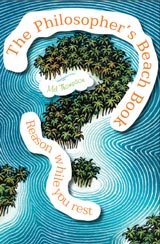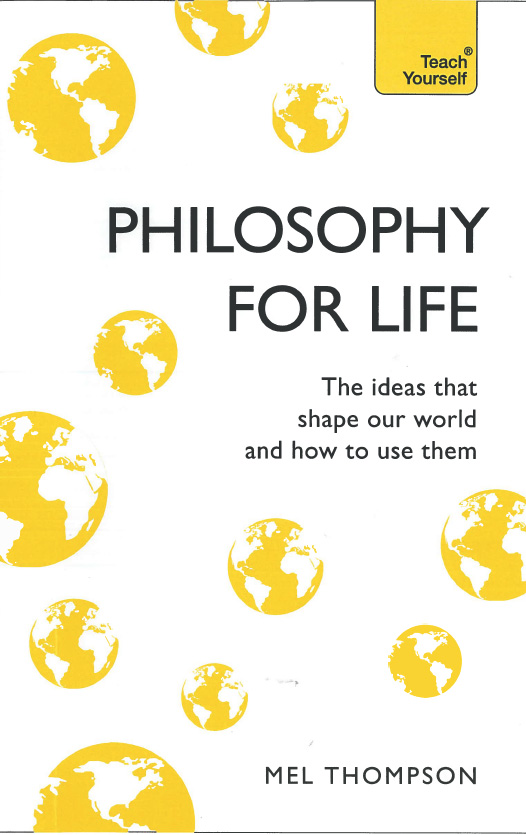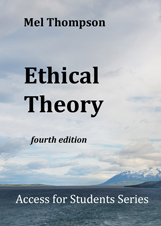
Take a seat on your virtual beach and prepare to wiggle your toes in a bit of philosophical sand...
Successful? Ambitious?
Whenever I contemplate the meaning of success, I am haunted by a brief monologue at the beginning of the film ‘Annie Hall’, when Woody Allen reflects on the famous comment by Marx – Groucho, of course, not Karl – that he did not care to join any club that would have him as a member. Life, so the Allen character would have us believe, is basically terrible and all too short. These self-contradictory ideas seem as good a place as any to start our quest to understand success.
We have a notion of what success could be, without which we could have no sense of failure. Without a goal we could never fall short; without a hope there is no disappointment. So the very fact that, even at moments when we despair and feel that life is a failure, we must have some idea of what success could mean for us. Woody Allen and Groucho Marx are, after all, hugely successful at presenting an image of what it is not to be successful.
But as soon as we take the step towards defining success, we hit problems. After all, we all wind up dead; so – if judged in terms of an end product – all life ends in failure. Unless, of course, you argue that after death we are rewarded or punished and therefore that we will be recognised as a success even if, in worldly terms, our life has appeared a failure. It was just such a religious hope for compensation beyond the grave that Marx – Karl this time, of course, not Groucho – criticised as deflecting our attention away from the genuine task of improving our conditions in this life, famously describing religion as ‘the opium of the people’, an understandable drug with which to escape from the constant awareness of present conditions on earth into the dream of heaven.
If you accept the idea of a heavenly reward for the troubles you’ve seen, even if ‘nobody knows but Jesus’, then that alone will give you an entirely new criterion of success – you will be judged according to the principles of your religion, quite apart from any earthly success or failure. Indeed, those to suffer martyrdom are the most highly rewarded; the ultimate failure becomes the ultimate success.
However, if you hold no such belief, the task is to try to assess what constitutes success. Aristotle, as the basis for his Natural Law approach to ethics, considered that goodness was a reflection of how well something fulfilled the purpose for which it had been designed. In the case of the human assessment of tools, that is very straightforward – the box will tell you what the tool is meant to do, you judge it according to whether it does it effectively. But how do you judge a human life? There is no purpose written on life’s box; we have the daunting task of working out for ourselves what we are designed to do.
That, of course, assumes that the universe is the product of rational design, whether religious or secular. If there is no pre-ordained design, then success is more a matter of survival than of function. Those best adapted to their environment survive and reproduce. Is that, then, the ultimate evolutionary criterion of success? To outbreed all others? To ensure that our genes are as widely disseminated as possible? History is littered with males who have taken just such a view.
So, if there is no designed criterion of success, we are thrown back onto the Nietzchian option of determining rather than discovering success. We say that the Ubermensch shall be the meaning of the earth. All will follow from that decision. Success then becomes a matter of a battle of wills; we strive for what we want to achieve, recognising that all others have the right to do the same. But Devil take the hindmost. After all, in any capitalist system, all businesses strive to succeed, but can do so only because others are able to fail. In a competitive environment, success is in limited supply.
But there is another hazard waiting for those who crave success. It is fate of the ambitious to slip straight from wannabe to has-been, discounting achievements in favour of plans. If your success is always to be achieved in the future, you will never quite achieve it, for as soon as you arrive at one goal, another will present itself. Only when, through old age, exhaustion or the more dynamic efforts of the next generation, you finally give up your ambition to be more, you will already find that you are being sidelined and patronised by the up-and-coming who, driven by their own ambition, are determined to build on your achievements. The ambitious are always stalked, by their own fear of failure, if not by rivals.
The problem, of course, is that success is retrospective (a measure of where you have come from) while ambition is prospective (a measure of where you want to go). Both threaten an accurate assessment of the present, for the first makes it seem inevitable, failing to recognise how much of our success may be down to luck or circumstances, while the latter discounts the present in favour of the future, sacrificing what is now for what will become later. In many ways, the image of the successful and ambitious person is like that of the gambler. Having won a considerable sum, the temptation is to press on in hope of winning more. Leaving the gaming table when reasonably ahead might be a sensible option in terms of one’s overall level of happiness, but success tends only to feed ambition and the onward march towards the promise of greater things.
However, if we are tempted to think that the ambitious, multi-tasking executive is a recent phenomenon, consider this passage in Nietzsche’s The Gay Science (para 329) written in 1887:
‘One thinks with a watch in one’s hand, even as one eats one’s midday meal while reading the latest news of the stock market; one lives as if one always ‘might miss out on something’.
‘Virtue has come to consist in doing something in less time than someone else.’
‘More and more, work enlists all good conscience on its side; the desire for joy already calls itself a “need to recuperate” and is beginning to be ashamed of itself. “One owes it to one’s health” – that is what people say when they are caught on an excursion into the country.’
Originally, he argues, the noble tried to conceal the fact that they might need to work; work was contemptible, something for slaves. Now we regard it as a mark of success. Nietzsche would have had something to say about those who take their laptop on holiday (see above, page 000).
When it comes to directing ambition, whether it be of an individual or a company, there is a temptation to rely on empirical facts. A Board, faced with tough decisions about the future direction of a company, needs to amass facts. If in doubt, it asks for more, sending the executive scuttling back to their spreadsheets. If the new detail does not resolve things, they may (often at great expense) go for the terminal option and bring in a statistician. At that point their cause is hopelessly lost. Why? Because the Board members have been working on the assumption that success and ambition are both directly related to data. Our profits are up! Does that automatically mean that we are successful? We want to grow and dominate the market! Is that either a realistic or desirable outcome of our efforts? The answer to both of these may be ‘Yes’, but that will depend on all sorts of issues about what the company is for and how it sees the value of what it does and for whom – issues that do not depend upon facts. It is commonplace to say that success (whether individual or corporate) is not related to wealth, or that one’s ambition need not translate into measurable benefits. But beneath that corny affirmation is the fundamental division between fact and value. As Hume said, you cannot get an ‘ought’ from an ‘is’ – no amount of information about the past or projections concerning the future will, in themselves, determine the deepest of human instincts and aspirations. The statistician will never be able to illuminate the values by which your company operates, merely its success or otherwise within a market economy, or its ability to deliver on goals that are already decided.
And, of course, we always need to keep in mind the Sorites Paradox (see page 00). Between success and failure there are a million gradations and mediocrity comes in a wonderful range of shades. You’ll need to be careful how you define success if you want to be convincing when you claim to have achieved it!
But without ambition nothing gets done; to see a possibility and work to make it a reality is the mark of a life directed by reason, so we should not mock the overtly ambitious. Equally, it would be arrogant not to acknowledge the comfort and reassurance that even the most modest success can bring. Both success and ambition have their place; but their qualities and promised satisfactions are addictive and potentially self-destructive. Their boxes should be labelled with the advice given by some manufacturers of alcoholic beverages: please enjoy responsibly.
Back at home:
As a personal exercise, plot out a mind-map of your ambitions and your successes. Add in your failed ambitions for good measure. What were your ambitions at earlier stages of your life? Did things work out as you expected? Which matter most to you now? What do you consider realistic? Does realism matter?
If, as a result of this exercise, you determine to take more responsibility for shaping your own life, rather than accepting the norms of others, you might consider reading more on Existentialism, e.g. Understand Existentialism, by Nigel Rodgers and Mel Thompson.






